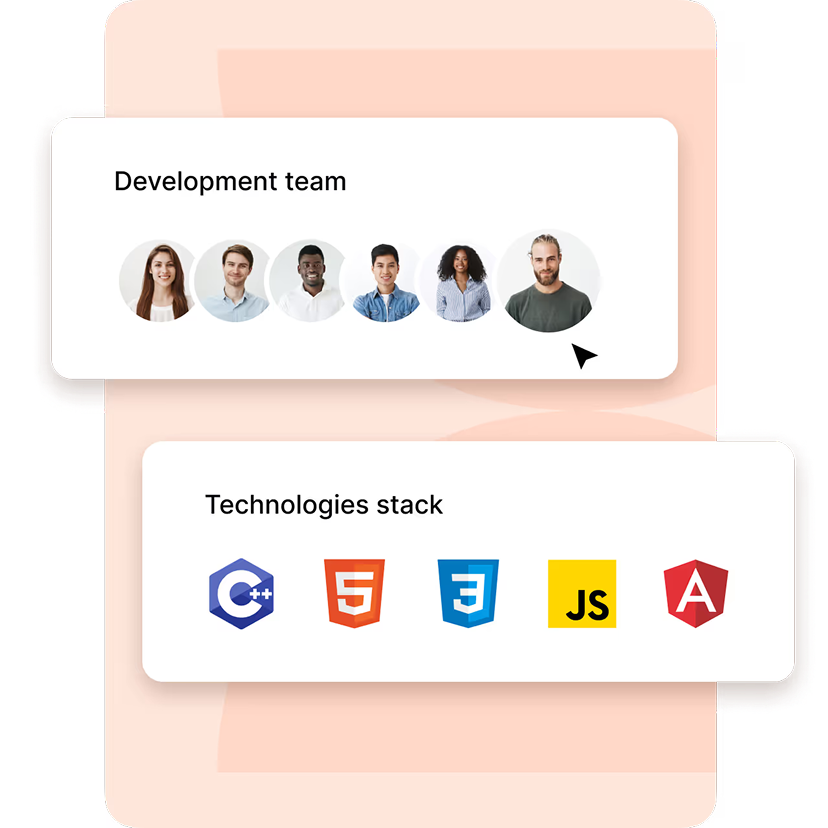Hire Data Scientists
Get a personalized demo now.webp)









Data Scientists employ a combination of skills in statistics, programming, machine learning, and data visualization to solve complex problems. For example, they work with image and video data to develop applications like object detection, facial recognition, and medical image analysis.
Data science helps organizations and individuals in making informed decisions, solve complex problems, and extract valuable insights from the ever-growing volume of data generated. By analyzing data, data scientists can identify patterns, trends, and correlations. Which then enables businesses to optimize processes, enhance customer experiences, and gain a competitive edge.
A Data Scientist is a technical specialist who leverages statistical analysis, programming, and machine learning to uncover insights from complex data. Their main responsibilities include building predictive models, analyzing large datasets, and clearly communicating results to guide strategic business choices. Essential skills span programming languages, data manipulation, and advanced analytics techniques.
Data Scientists turn raw data into meaningful insights that fuel business growth and innovation.
- Create predictive models that anticipate trends and inform business strategy.
- Analyze customer data to enhance user experience and boost retention.
- Automate data collection and processing workflows for improved efficiency.
- Visualize complex data and present findings to stakeholders for better decision-making.
- Design experiments to validate business hypotheses and streamline processes.
- Apply machine learning techniques to tackle real-world business challenges.

We live in an era where vast amounts of data are generated every day. This data holds valuable insights that can help organizations make informed decisions. Data scientists develop models and algorithms that enable organizations to make data-driven decisions. Whether it's in finance, marketing, healthcare, or any other industry, these decisions can lead to cost savings, increased efficiency, and better outcomes.
Companies like Amazon, Walmart, and eBay hire data scientists for customer behavior analysis, demand forecasting, pricing optimization, recommendation systems, and supply chain optimization.
Python, R
Perform advanced data analysis using Python or R, developing sophisticated models and algorithms that extract meaningful insights from complex datasets.
SQL
Execute complex database queries and data manipulation using SQL, optimizing performance across large datasets while ensuring data accuracy and efficiency.
Statistical analysis
Conduct comprehensive statistical analysis and hypothesis testing, applying advanced methods to uncover patterns and generate actionable business insights.
Data visualization
Create compelling visualizations and interactive dashboards, transforming complex datasets into clear visual narratives that communicate insights effectively to stakeholders.
Hadoop, Spark
Process massive datasets using Hadoop or Spark frameworks, implementing distributed computing solutions that handle big data challenges with optimal performance.
AWS, Azure
Deploy scalable cloud-based data solutions using AWS or Azure platforms, leveraging cloud-native services to build robust analytics infrastructure.
Job titles
Data Analyst
Data Engineer
Statistician
Business Analyst
Research Scientist
Computer Vision Engineer
With thousands of professionals and technical experts, it'll be easier to find a Data Scientist that fits in your team.
While searching on Google, use Boolean operators like "AND," "OR," and "NOT" to refine your search. For example, "Data Scientist" AND "Python" will show results for Data Scientists with Python as their preferred programming language.
You can also use the "inurl:" operator to find URLs with specific keywords. For example, "inurl:resume developer" may show Data Scientists' resumes. Incorporate "filetype:" operator to search for particular file types, such as "filetype:pdf Data Scientist resume" to find resumes in PDF format.
Some of the most popular LinkedIn communities where you can find Data Scientists are Data Scientist & Analyst, Data Scientist, Data Analyst and Data Engineer, Data Science Central, and Data Science Community, etc. These communities will make it easier for you to find Data Scientists for hire.
Explore the LinkedIn company pages of tech companies or startups that are working in this field. These pages often feature employees' profiles, which can be a source of potential candidates. And thus help you find Data Scientist with exceptional skills.
Online job boards
Post job openings on Indeed, LinkedIn, Naukri, Glassdoor, and Stack Overflow Jobs. Craft a clear and detailed job description that outlines the specific skills, experience, and qualifications you're looking for in a Data Scientist. While crafting the Data Scientist job description, make sure your compensation package and benefits are competitive within the job market. Following this strategy, you can effectively leverage job posting platforms to find and hire Data Scientist with the right skillset.
Developer communities and forums
When looking to hire a Data Scientist, explore platforms like GitHub and Stack Overflow. Evaluate potential candidates by examining their projects. Consider the quality of their code, how much they contribute, and their overall activity. Seek out individuals with Data Scientist skills that align with your project's needs. If your company has GitHub projects, showcase them to attract developers interested in your work.
Tech conferences and meetups
Attend Data Science and related events to network with talented developers. By attending talks and discussions, you can gain insights into the interests and expertise of developers, helping you find candidates with exceptional Data Scientist skills. Search for the upcoming regional or global Data Science conferences online. Platforms like Eventbrite, Meetup, and Eventful allow you to search for and filter events. These events can be beneficial to hire Data Scientist for your organization.
HackerEarth hiring challenges
Sponsor online coding challenges to find competitive developers. For instance, Ford Business Solutions collaborated with HackerEarth to run the Data Scientist & Analytics Modeler Hiring Challenge in 2022, to hire Analytics Modeler. These events can assist you in finding candidates with good Data Scientist skills.
Open source communities
Engaging with active contributors in Data Science-related open-source projects is a strategic approach to identify talented Data Scientists. By participating in discussions, reporting issues, or even collaborating on these projects, you can discover individuals with a strong commitment to the Data Science community. These contributors often maintain public repositories and share their Data Science portfolios, showcasing their skills and expertise.
Online learning platforms
Connect with Data Science enthusiasts on online learning platforms like Udemy and Coursera. Exploring the projects and assignments submitted by learners in these online courses can provide a glimpse into their practical skills and coding abilities. Data Science enthusiasts often use these platforms to showcase their proficiency. You can also find links to their personal portfolios or GitHub repositories. Thus, it will be easier for you to discover talented individuals who are actively enhancing their Data Scientist skills.
Local universities and coding boot camps
Collaborate with local academies and educational institutions to find aspiring Data Scientists. For instance, you can partner with coding bootcamps that offer Data Science courses. By engaging with instructors and students in these programs, you can identify promising talents who are eager to apply their newly acquired Data Scientist skills to real-world projects.
Social media channels
Use platforms like Twitter, LinkedIn, and Facebook to share projects and job openings. Engage with Data Science communities such as Open Data Science community. Actively participating in discussions and direct outreach to individuals can help you hire developers with the right skillset. Crafting engaging posts about your company's Data Science initiatives and job opportunities can generate organic interest.
Referrals and employee networks
Promote employee referrals and leverage existing networks to gather recommendations in order to hire Data Scientist with the right skillset.
Hire top tech talent withour recruitment platform
Access Free Demo👍 Pro tip
Reddit is a great place to look for various Data Science-related communities, including r/DataScientist, r/dataanalyst, r/BigDataJobs, r/datascience, r/datascientists, r/dataengineering, etc. You can also join related Communities on Discord with thousands of members.
To hire a Data Scientist, the most common assessment framework on HackerEarth includes
A combination of technical evaluations, coding exercises, and behavioral assessments. Here are some common components of the assessment framework:
Code completion tasks
Code completion tasks streamline hiring Data Scientists, evaluating their practical coding and modeling skills. By presenting partial code snippets and assessing completion accuracy, you can hire a Data Scientist adept at implementing machine learning algorithms, handling data preprocessing, and optimizing model performance. These tasks offer a tangible demonstration of a candidate's ability to translate theoretical knowledge into applied solutions, ensuring you recruit Data Scientist capable of contributing effectively to your data science projects.
Multiple-choice questions (MCQs)
MCQs streamline hiring for Data Scientists, assessing their theoretical knowledge in key areas. Questions on algorithms, statistical methods, and programming languages help hire Data Scientist with a solid foundation. Well-crafted MCQs enable efficient evaluation of their understanding of data preprocessing steps, model selection criteria, and interpretation of results. The process ensures that you hire a Data Scientist who not only has conceptual clarity but also the breadth of knowledge required for the job.
Project-specific questions
Project-specific questions are vital in hiring Data Scientists, offering insights into their applied skills. Tailored inquiries can assess their expertise in machine learning algorithms, statistical modeling, and domain-specific knowledge, which are essential data scientist skills. For instance, asking about feature engineering strategies or their approach to handling imbalanced datasets provides a practical evaluation of their problem-solving abilities. Project-specific questions ensure that the you hire a Data Scientist who not only understands theoretical concepts but can also apply them effectively to address the unique challenges of your specific projects. Ultimately contributing to the success of your data-driven initiatives.
Language-specific questions
Language-specific tasks aid hiring Data Scientists, assessing their ability to express complex concepts. Questions on programming languages like Python validate their coding proficiency, while discussions on SQL showcase their data querying and manipulation skills. This ensures you hire a Data Scientist with both analytical prowess and effective communication in the languages integral to data science workflows.
Our bias-free, objective platform has facilitated 1,00,000+ assessments per month
Get a personalized demo nowCode completion task
- Write Python code to load a CSV file using pandas and display the first few rows of data.
- How would you handle missing values in a dataset using Python and pandas?
- Use matplotlib or seaborn to create a histogram or box plot for data visualization.
- Implement a simple linear regression model in Python using scikit-learn.
- Implement a simple neural network using a deep learning framework like TensorFlow or PyTorch.
Multiple-Choice Questions (MCQs)
- Which Python library is commonly used for data manipulation and analysis in data science?
- Matplotlib
- Seaborn
- Pandas
- Scikit-learn
- Which statistical measure is used to quantify the spread or dispersion of data points in a dataset?
- Mean
- Median
- Standard Deviation
- Mode
- In supervised learning, what is the target variable also known as?
- Independent variable
- Dependent variable
- Feature variable
- Predictor variable
Questions related to Hadoop
- Explain the Hadoop Distributed File System (HDFS) and its key characteristics.
- What are the main components of the Hadoop ecosystem, and how do they work together?
- What are the benefits of using Hadoop for processing large datasets, and what are its limitations?
- Explain the concept of data locality in Hadoop and why it is important for optimizing data processing performance.
- Explain the role of Hive in the Hadoop ecosystem, and how does it facilitate SQL-like querying of data stored in HDFS?
AWS questions
- Explain the AWS Cloud Computing service models (IaaS, PaaS, and SaaS) and provide examples of each in a data science context.
- How can AWS Lambda be employed in data science workflows, and what are the benefits of serverless computing for data processing tasks?
- What is Amazon Redshift, and how does it support data warehousing and analytics in AWS?
- Describe the use of AWS SageMaker in machine learning and data modeling tasks.
- What security measures and access control mechanisms does AWS offer to protect sensitive data in data science projects?
👍 Pro tip
These sample questions provided here are for interviewing early-experience talents. For more customized assessments for candidates with higher experience, you can contact our team at contact@hackerearth.com or request a demo here.
Job title
A Data Scientist job description should begin with a clear and concise job title that reflects the role, such as "Data Analyst", "Data Engineer", and “Business Analyst”. Having a clear title will make the search easier for the candidates.
Job summary
Provide a brief overview of the position, emphasizing the key responsibilities and objectives when you are writing a Data Scientist job description. Describe the role's primary focus and how it contributes to the company's goals. To find Data Scientist for your company, its important to highlight the necessary details for the role.
Responsibilities
The Data Scientist job description should outline the specific tasks and responsibilities that they will be expected to handle. This may include:
- Gathering and acquiring data from various sources.
- Cleaning and preprocessing data to ensure quality and consistency.
- Exploring data using statistical methods and visualization tools.
- Creating new features or transforming existing ones to improve model performance.
- Building and training machine learning models for predictive and prescriptive analytics.
- Designing and conducting experiments to test hypotheses and optimize processes.
- Handling and processing large-scale datasets using technologies like Hadoop, Spark, or AWS services.
Including these points will help you filter out candidates beforehand. Thus help you find Data Scientist with the right skillsets.
Data Scientist skills and qualifications
List the essential Data Scientist skills and qualifications that candidates must possess, including, but not restricted to:
- Proficiency in data analysis tools like Python or R.
- Strong statistical knowledge for hypothesis testing and modeling.
- Expertise in machine learning algorithms for regression, classification, clustering, and deep learning.
- Experience with libraries like scikit-learn, TensorFlow, or PyTorch.
- Proficiency in data visualization tools like Matplotlib, Seaborn, or Tableau.
- Familiarity with big data processing tools like Hadoop, Spark, or AWS services.
Including these key points is an important part of the Data Scientist job description. It can help you attract the candidates whose skills align with the job. Ultimately helping you recruit Data Scientist who is the best fit.
Preferred skills
Mention any additional Data Scientist skills or qualifications that would be beneficial but not mandatory for the role. You can also ask for experience with specific tools, libraries, or frameworks.
Education and experience
The Data Scientist job description should also specify the educational background and professional experience required for the position. This could range from a bachelor's degree in computer science or a related field to several years of relevant experience. Listing these points will make it easier for you to find Data Scientist for your project. You should always aim to recruit Data Scientist with the best and up-to-date skills.
Company culture and EVPs
Briefly highlight your company's culture, values, and any unique perks or benefits offered to employees that can help attract candidates who align with your company's ethos. It will also help you hire a Data Scientist who is best fit for your company.
Application instructions
While writing a Data Scientist job description, you should also provide instructions on how candidates can apply for the position. Include details such as where to send their resume, portfolio, or other required documents. Also, specify the deadline for applications, if applicable.
Equal Opportunity Statement
Include a statement affirming that your company is an equal opportunity employer committed to diversity and inclusion. It will attract the right candidates and hence will help you hire the best from them.
Skill-first hiring requires that the developer interview process be designed to understand the candidate’s skill and experience in the given domain. You can consider the following guidelines when conducting a face-to-face interview with a Data Scientist:
Conduct a real-time technical assessment
Usually candidates are given a remote assessment before the interview. However, using the interview platform to assess skills in real time will tell you a lot about the candidate’s communication skills and thought process.
FaceCode is HackerEarth’s flagship tech interview platform with a built-in question library you can use to test the candidate’s knowledge of Data Science concepts they claim to be familiar with. The built-in IDE environment can be used for assessing their ability to write clean, efficient, and maintainable code. You can also use the pair-programming method to observe their problem-solving approach, logical thinking, and attention to detail.
Learn how Facecode can make tech interviews easier
Understand the candidate’s project experience and review the portfolio
During the Data Scientist interview assessment, explore the candidate's past and present projects. Focus on their personal contributions and the skills they used. Ask them to discuss a PHP project, detailing their responsibilities, problem-solving, and collaboration. If available, review their portfolio or code samples for coding style, documentation, and project quality.
Understand if they are a good culture and team fit
Another important thing to test during the Data Scientist interview assessment is whether the candidate is a good cultural fit or not. While technical skills are essential for a developer, the significance of cultural fit should not be overlooked. The ideal candidate must possess not only accurate coding abilities but also effective communication and collaboration skills to thrive in agile and collaborative environments. Evaluating a candidate's capability to work both independently and collaboratively in a team is crucial. This assessment provides valuable insights into the candidate's problem-solving skills, communication, and adaptability, helping to determine their fit for the role and the team dynamics.
United States
Salaries are highest in major cities and for data scientists with advanced experience or specialized skills.
- Average Annual Salary: $114,527 per year (base pay)
- Typical Range: $92,000–$130,000 (base pay)
- Entry-Level: $92,000–$100,000 per year
- Mid-Level: $114,000–$130,000 per year
- Senior-Level: $130,000–$151,000+ per year
United Kingdom
London and other major cities offer higher salaries, particularly for senior roles or those with advanced skills in cloud, AI, or enterprise data platforms.
- Median Annual Salary: £54,449 per year (London average), with total pay averaging £60,532 per year
- Typical Range: £43,000–£69,000 (base pay)
- Entry-Level: £32,000–£43,000 (graduate roles)
- Mid-Level: £54,000–£69,000 per year
- Senior-Level: £70,000–£85,000+ per year
Australia
Salaries are highest in Sydney and Melbourne, with top pay for experienced and senior data scientists, especially in tech, finance, and healthcare sectors.
- Sydney Average Salary: A$125,000 per year (base), with total pay averaging A$135,000 per year
- Typical Range: A$100,000–A$135,000 (base pay)
- Entry-Level: A$85,000–A$104,000 per year
- Mid-Level: A$110,000–A$130,000 per year
- Senior-Level: A$130,000–A$145,000+ per year
What qualifications should I look for in a Data Scientist?
When looking for a Data Scientist, look for relevant degree in a quantitative field such as computer science, statistics, or mathematics. Priortize relevant work experience or internships in data analysis and machine learning. Candidates with strong proficiency in programming languages like Python or R, and good communication skills should be preferred.
Additionally, certifications like Certified Data Scientist (CDS) or AWS Certified Data Analytics - Specialty can validate their skills. Check their portfolio of data science projects and see what kind of practical experience they have. Domain knowledge related to the industry in which they will work can also be an asset.
Do we require the candidate to have experience in all the necessary tools or just one is enough?
For a data scientist, while versatility and experience with multiple tools can be advantageous, it is often sufficient to have expertise in one or more key tools. The specific tool requirements can vary depending on the job role and organization. However, strong proficiency in essential tools like Python and libraries such as pandas, scikit-learn, and Matplotlib is more than enough.
Data scientists should also demonstrate adaptability to learn and use additional tools as needed for specific projects, making the ability to choose the right tools for the job a critical skill in the field.
What are the skillsets of a Data Analyst?
The skillset of a Data Analyst includes expertise in data collection and cleaning, proficiency in data manipulation and analysis. They should have strong data visualization skills using tools such as Tableau or Power BI, statistical knowledge for generating insights from data, and the ability to effectively communicate findings to both technical and non-technical stakeholders. Data Analysts are also expected to have critical thinking and problem-solving abilities, attention to detail, and a strong understanding of the business context in which they work. It will enable them to provide data-driven insights and support decision-making processes.
Additionally, familiarity with programming languages like Python or R, as well as experience with data visualization libraries and dashboard creation, can further enhance their skillset.
How to assess a candidate's real-world project-handling skills?
candidate to walk you through specific projects, focusing on their problem-solving strategies. Present a real-world data problem or case study relevant to your organization and ask the candidate to outline how they would approach it. Starting from data collection and preprocessing to analysis and presenting findings.
Additionally, consider conducting technical assessments or coding exercises related to data analysis, statistics, and visualization to gauge their hands-on skills. Reference checks and discussions with former colleagues or supervisors can provide valuable insights into their project collaboration and execution abilities.
How does the requirement for Data Science skills changes across various job roles?
Companies recruit Data Scientist with deep expertise in data analysis, statistical modeling, and machine learning, along with strong programming skills in languages like Python or R. In contrast, a Data Analyst focuses more on data collection, cleaning, and creating actionable insights, requiring proficiency in SQL, data visualization, and domain knowledge.
Data Engineers concentrate on data pipeline development, necessitating skills in database management, ETL (Extract, Transform, Load) processes, and big data technologies like Hadoop and Spark. Meanwhile, Business Analysts lean on data to support decision-making, necessitating data interpretation, reporting, and communication skills. So, the specific data science skills and tools required can vary widely, aligning with the distinct responsibilities of each role.





.webp)
.webp)
.webp)
.webp)
.webp)
.webp)

.webp)
.webp)





.webp)


.webp)












